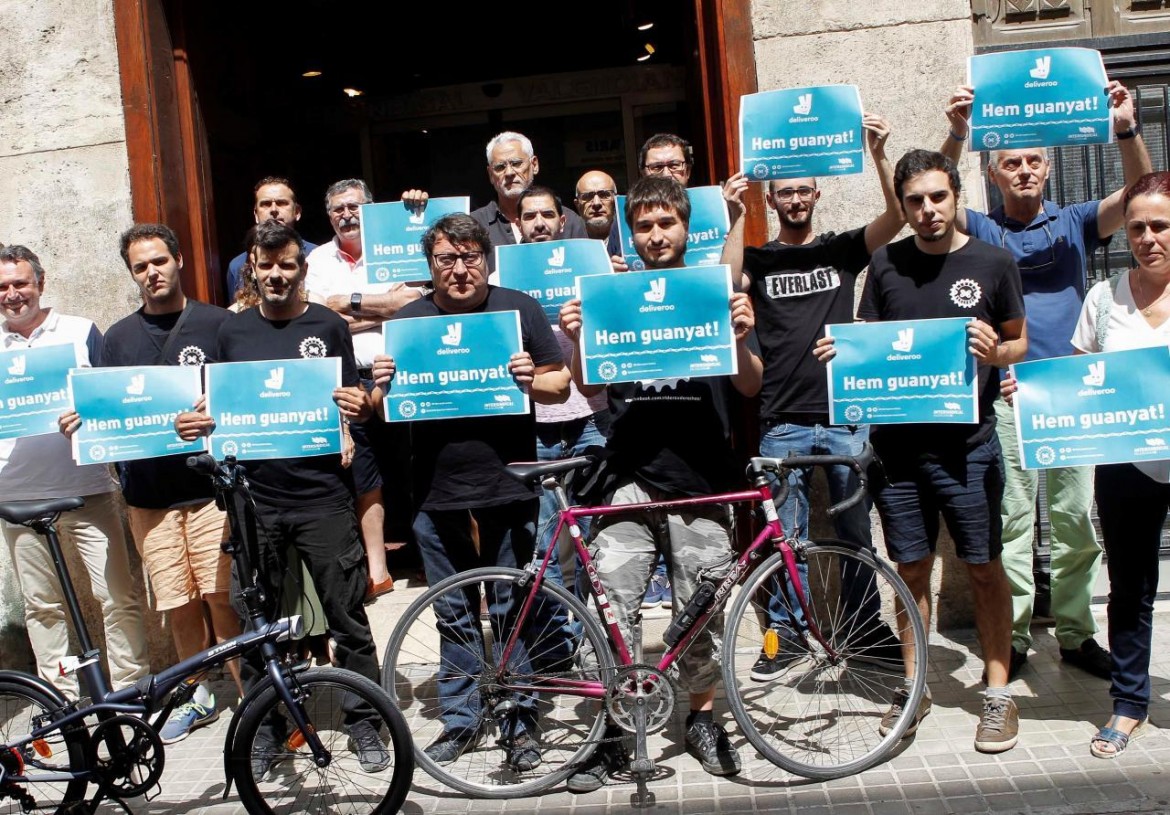Analysis
Hire those riders: Spanish court issues shock decision in Deliveroo case
A Madrid court ruled that 532 Deliveroo riders who worked between 2015 and 2017 in the Spanish capital must be paid legal wages and benefits, the most significant Spanish decision to date because it considers the app the means of production.

The over 500 Deliveroo riders in Madrid are being illegally employed as freelancers, and the company must hire them as employees and pay all the legal contributions on their behalf. This surprise decision came earlier this week from the Juzgado de lo Social No. 19 court in Madrid, which ruled in favor of the Seguridad Social, the Spanish Social Security authority.
After thorough inspections in 2015 and then in 2017, the agency said Deliveroo needed to pay social security contributions for all 532 riders who had worked for Deliveroo between October 2015 and June 2017 in the Spanish capital, at a cost of around €1 million. The Social Security agency had argued that they should be considered as employees, while the company said they were self-employed. Deliveroo intends to appeal.
It’s not the first court ruling heading in this direction, but it is the most important in Spain up to this point. In June, a similar ruling in Valencia recognized 97 riders as employees, while Barcelona is awaiting a ruling (scheduled for February 2020) in a similar complaint filed on behalf of 750 riders.
The problem of the precarious working conditions for those who work as part of the gig economy has by now assumed dramatic proportions, which often result in tragedy, as happened one night in Barcelona two months ago, when a 22-year-old Nepalese cyclist working for Glovo died after he was hit by a truck in the city center.
According to Col·lectiu Ronda, a collective of Catalan lawyers specializing in employment and who are closely following the Barcelona trial, the Madrid ruling is “of vital importance,” even though it is not yet final. They point out that the ruling does not restrict itself to an individual situation or to a small group of workers, but instead “analyzes the conclusions of the labor inspectors with regard to the business model of Deliveroo in all its ramifications,” said to Natxo Parra, one of the lawyers from the collective.
The ruling analyzes in great detail the riders’ working conditions, and concludes that “the delivery workers are performing their services in a highly organized manner, managed by the accused company down to the smallest detail.” It notes “the existence of instructions for delivery drivers which, beyond contracting the service, set the conditions in which that service is to be performed with the maximum precision, conditions that the company will then control and evaluate.”
The only contribution to all this on the part of the riders is the decision regarding how they will perform the service (by bicycle or motorcycle) and the choice of the route (“although it seems obvious that they will choose the shortest one,” the ruling points out), and they are absolutely dependent on the app, which is “controlled and supplied by the company.” Of course, they can also reject a delivery request, but this, as the ruling highlights, “can have negative consequences” because of how the app has been designed.
Lawyer Esther Comas from Col·lectiu Ronda, who has been following the case in Madrid together with the lawyers for the main Spanish unions, highlights the novel element in the ruling: considering the app “as a crucial element of the business model, contrary to other rulings favorable to the company, which defined the bicycle or motorbike as the main means of production.”
As for Deliveroo (through its Spanish subsidiary, Roofoods Spain), it of course believes that “the sentence does not reflect the form in which riders collaborate with the company,” and is calling on politicians to pass “a legal reform that would allow companies to offer autonomous riders better security without endangering their flexibility, which the same riders have told us they want.”
Originally published at https://ilmanifesto.it/assumete-quei-riders-in-spagna-una-sentenza-shock-per-deliveroo/ on 2019-07-25
